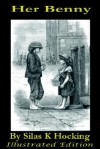Currently reading
The Lonely Sea: Collected Short Stories
Her Benny
Vedere din Parfumerie
Mysticism and Logic (Western Philosophy)
The Analects of Confucious
Pragmatism: A New Name for Some Old Ways of Thinking
Does Anything Eat Wasps?: And 101 Other Unsettling, Witty Answers to Questions You Never Thought You Wanted to Ask
Mutual Aid
City of Djinns: A Year in Delhi
The Brothers Karamazov
Good Omens: The Nice and Accurate Prophecies of Agnes Nutter, Witch
 I will admit, regretfully, that "The Hitchhiker's Guide to the Galaxy" seemed to have lost something when I started reading it again as an adult. But the majority of this book's fans are not children. It makes me more than a little concerned about the state of (British?) humour. Possibly it is the plot which turned people on. Nevertheless, this is probably the book which has simultaneously confirmed that I won't be reading more Pratchett, nor will I start reading Gaiman. Put simply, despite 3 or 4 really funny asides, there is too much tedious plot and not enough humour. I begin to doubt whether either man is a humourist in the strictest sense.
I will admit, regretfully, that "The Hitchhiker's Guide to the Galaxy" seemed to have lost something when I started reading it again as an adult. But the majority of this book's fans are not children. It makes me more than a little concerned about the state of (British?) humour. Possibly it is the plot which turned people on. Nevertheless, this is probably the book which has simultaneously confirmed that I won't be reading more Pratchett, nor will I start reading Gaiman. Put simply, despite 3 or 4 really funny asides, there is too much tedious plot and not enough humour. I begin to doubt whether either man is a humourist in the strictest sense.It turns out that I could detect quite clearly when Pratchett had stopped mumbling pleasantries and Gaiman had taken over to add some violent sarcasm, American style. The afterword confirmed that I'd pinpointed one of the key points when Gaiman took over.
In my paperback, Pratchett and Gaiman write separate essays about each other. Pratchett says explicitly that Gaiman "is not a genius", but a kind of a dedicated workhorse it seems. It's possible and likely that humour isn't Gaiman's real genre. It's just strange that Gaiman's essay criticizes Douglas Adams, while some reviewers suggest that Gaiman studied Adams closely enough to try to copy his style at times, although not, apparently, in this book.













